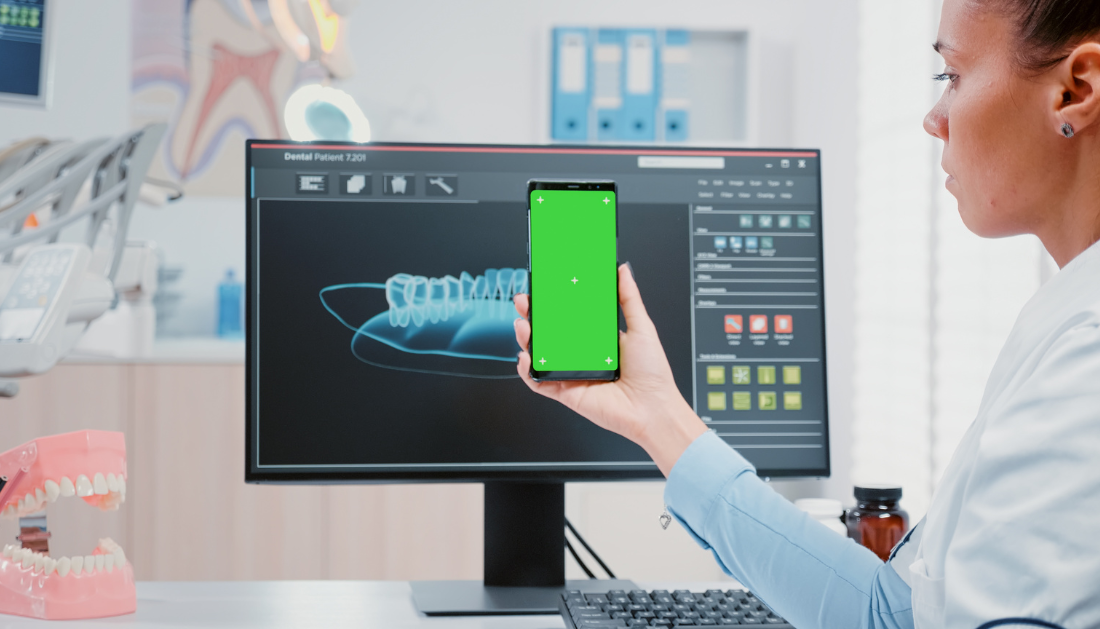

The human mouth contains a variety of information on overall health. This information, which includes body temperature and head and jaw motions while sleeping, might be critical for understanding health concerns and dental issues which can be detected by a dental brace which is battery free. However, gathering such information is sometimes difficult and uncomfortable.
Researchers at TU Delft and Radboudumc have created Densor, a battery-free sensor platform that can be worn in the mouth via a normal dental brace or a “bite splint.”
This breakthrough open-source technology allows for safe and user-friendly long-term oral measurements. It is unique in that it requires no additional hardware—only a smartphone to charge and read data. The user study was published in the Proceedings of the ACM Conference on Interactive, Mobile, Wearable, and Ubiquitous Technologies.
“Densor is more than just a technological innovation; it is a step toward accessible and inclusive health monitoring. By making the design open source—both hardware and software—we aim to enable experts in fields such as dentistry and sleep research worldwide to apply this technology in a variety of ways,” says Przemysław Pawełczak, associate professor of Embedded Systems at TU Delft.
Dental Brace – Versatile applications and new insights
The technique has the potential to be used in a variety of applications, including sleep research, apnea and dental wear detection, and treatment adherence monitoring. Densor not only accurately measures jaw and head motions, but also distinguishes between speaking, swallowing, and drinking. This makes it more precise and user-friendly than older approaches like ear-worn accelerometers.
“The ability to collect real-time, long-term data in the mouth with a user-friendly device is truly innovative. It opens doors to new preventive and diagnostic possibilities in areas such as nutrition, dental wear, or acid reflux issues,” comments Bas Loomans, Dentist and Professor of Oral Function and Restorative Dentistry at Radboudumc.
The researchers are currently working on developing the platform with more sensors and integrated data processing to open up even more possibilities. Future improvements include detecting acid reflux and tracking saliva production. The team is also working to provide faster and more extended measurements, making the platform relevant across other disciplines.
For more information: Vivian Dsouza et al, Densor: An Intraoral Battery-Free Sensing Platform, Proceedings of the ACM on Interactive, Mobile, Wearable and Ubiquitous Technologies (2024). DOI: 10.1145/3699746
more recommended stories
 Microplastic Exposure and Parkinson’s Disease Risk
Microplastic Exposure and Parkinson’s Disease RiskKey Takeaways Microplastics and nanoplastics (MPs/NPs).
 Sickle Cell Gene Therapy Access Expands Globally
Sickle Cell Gene Therapy Access Expands GloballyKey Summary Caring Cross and Boston.
 Reducing Alcohol Consumption Could Lower Cancer Deaths
Reducing Alcohol Consumption Could Lower Cancer DeathsKey Takeaways (At a Glance) Long-term.
 NeuroBridge AI Tool for Autism Communication Training
NeuroBridge AI Tool for Autism Communication TrainingKey Takeaways Tufts researchers developed NeuroBridge,.
 Population Genomic Screening for Early Disease Risk
Population Genomic Screening for Early Disease RiskKey Takeaways at a Glance Population.
 Type 2 Diabetes Risk Identified by Blood Metabolites
Type 2 Diabetes Risk Identified by Blood MetabolitesKey Takeaways (Quick Summary) Researchers identified.
 Microglia Neuroinflammation in Binge Drinking
Microglia Neuroinflammation in Binge DrinkingKey Takeaways (Quick Summary for HCPs).
 Precision Oncology with Personalized Cancer Drug Therapy
Precision Oncology with Personalized Cancer Drug TherapyKey Takeaways UC San Diego’s I-PREDICT.
 Iron Deficiency vs Iron Overload in Parkinson’s Disease
Iron Deficiency vs Iron Overload in Parkinson’s DiseaseKey Takeaways (Quick Summary for HCPs).
 Can Ketogenic Diets Help PCOS? Meta-Analysis Insights
Can Ketogenic Diets Help PCOS? Meta-Analysis InsightsKey Takeaways (Quick Summary) A Clinical.

Leave a Comment